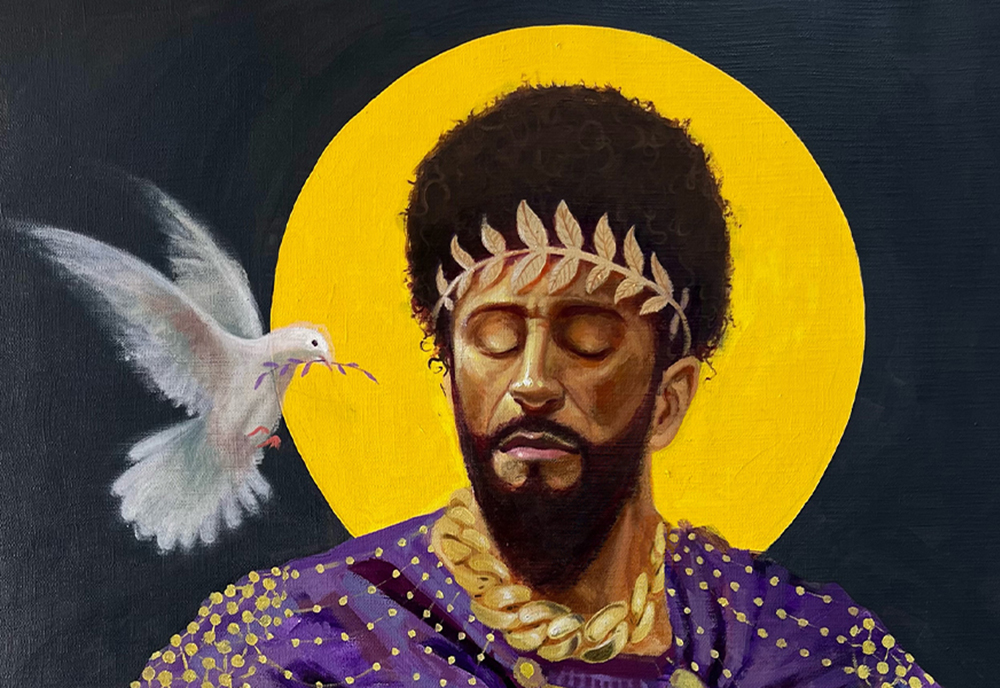By Georgia Jackson, College of Arts and Sciences
When Zora Neale Hurston, author of “Their Eyes Were Watching God,” submitted a draft of her historical novel on Herod the Great to her editor at Scribner Books in 1955, she was met with resistance.
“Her editor at Scribner was afraid to come into opposition with the Catholic Church,” said Deborah Plant, a former associate professor of English and africana studies at the University of South Florida, who helped bring the novel to bookshelves this year.

During her tenure, Deborah Plant taught classes on the life and legacy of Zora Neale Hurston at USF.
In the novel, titled “The Life of Herod the Great,” Herod is not the wicked ruler familiar to readers of the New Testament but a beloved king who enriched Jewish culture and brought prosperity and peace to Judea. Considered a controversial view at the time, Hurston’s perspective has become widely accepted by contemporary historians in the seventy years since her manuscript was rejected.
“She wanted people to know who he was,” Plant said in an interview with NPR’s Morning Edition. “And she wanted people to know that he was not this terrible, oppressive tyrant, as he was purported to be, but quite a popular king who ruled for 37 years."
Hurston continued to revise the unpublished manuscript until her death in 1960, convinced of its literary and anthropological value despite the resistance she faced from editors and religious leaders alike.
When a handyman tasked with clearing out her home in Fort Pierce, Fla. set fire to a trunk containing her possessions, the manuscript was almost lost forever.
“A deputy sheriff happened to be driving by,” said Plant, who also edited Hurston’s book “Barracoon: The Story of the Last ‘Black Cargo.’” “He knew Hurston. They were friends, and he knew she was a writer. And he thought he had better put that fire out, which he did and, in doing so, he saved what was left of the manuscript.”
Of the manuscript’s roughly 400 pages, about a third had been exposed to fire and smoke.
The deputy sheriff delivered the damaged manuscript to another friend of Hurston’s, Marjorie Silvers, who sent it to the University of Florida, where it remained in the university’s archives in Gainesville until Plant applied for and received permission to edit it for publication just a few years ago.
“All things in time,” said Plant, who is the author of several books of nonfiction, including “Zora Neale Hurston: A Biography of the Spirit” and “Every Tub Must Sit on Its Own Bottom: The Philosophy and Politics of Zora Neale Hurston.”
As she worked to prepare the manuscript for publication, Plant’s primary goal was to preserve Hurston’s voice.

"The Life of Herod the Great" was written by Zora Neale Hurston and edited by Deborah Plant. It was published on Jan. 7, 2025, on what would have been Hurston's 134th birthday.
“My effort with the manuscript was for the reader to hear only Hurston’s voice,” she said.
But, where the manuscript was burnt, stained or otherwise damaged, Plant had to make editorial decisions to keep the narrative moving forward.
“In those instances, I put three dashes in brackets to indicate missing words or pages,” Plant said. “The ideas connect in a kind of continuous flow, in spite of what’s missing.”
Plant also had to decide how to end the novel. Because Hurston was still working on the manuscript when she died, many of the later chapters are brief or unfinished.
“The ending itself is not there,” Plant said. “It either wasn't preserved or it wasn't included in the latest draft. My thinking is that Hurston intended to elaborate on those chapters but didn’t get an opportunity to do so. So, the latter chapters are almost like an outline of the main ideas that she was going to flesh out. In any case, they're kind of summary.”
To preserve the story’s ending while maintaining Hurston’s voice, Plant turned to the letters Hurston wrote to her friends and colleagues for clues.
"We know what the ending was, because she wrote it in her letters,” said Plant, who included excerpts from Hurston’s letters in the book’s epilogue so that readers would not be left unsatisfied and could read Hurston's thoughts about Herod’s final days.
The final product is a 368-page testament to Hurston’s “genius” — as Plant puts it — as a social scientist, literary talent, activist, political visionary and lay historian.
“The history that she researched and engaged in to find this narrative of Herod ... We’re talking about the first century B.C. and before. This goes way back. But she had that kind of capacity to plunge into that history, to make sense of it, to extrapolate truths that we are still having to open ourselves up to and appreciate today,” Plant said. “She learned things about Herod and his time that contemporary historians are just coming to the table to say, ‘Oh yeah, that's right.’”
The novel is available from Amistad Books.
